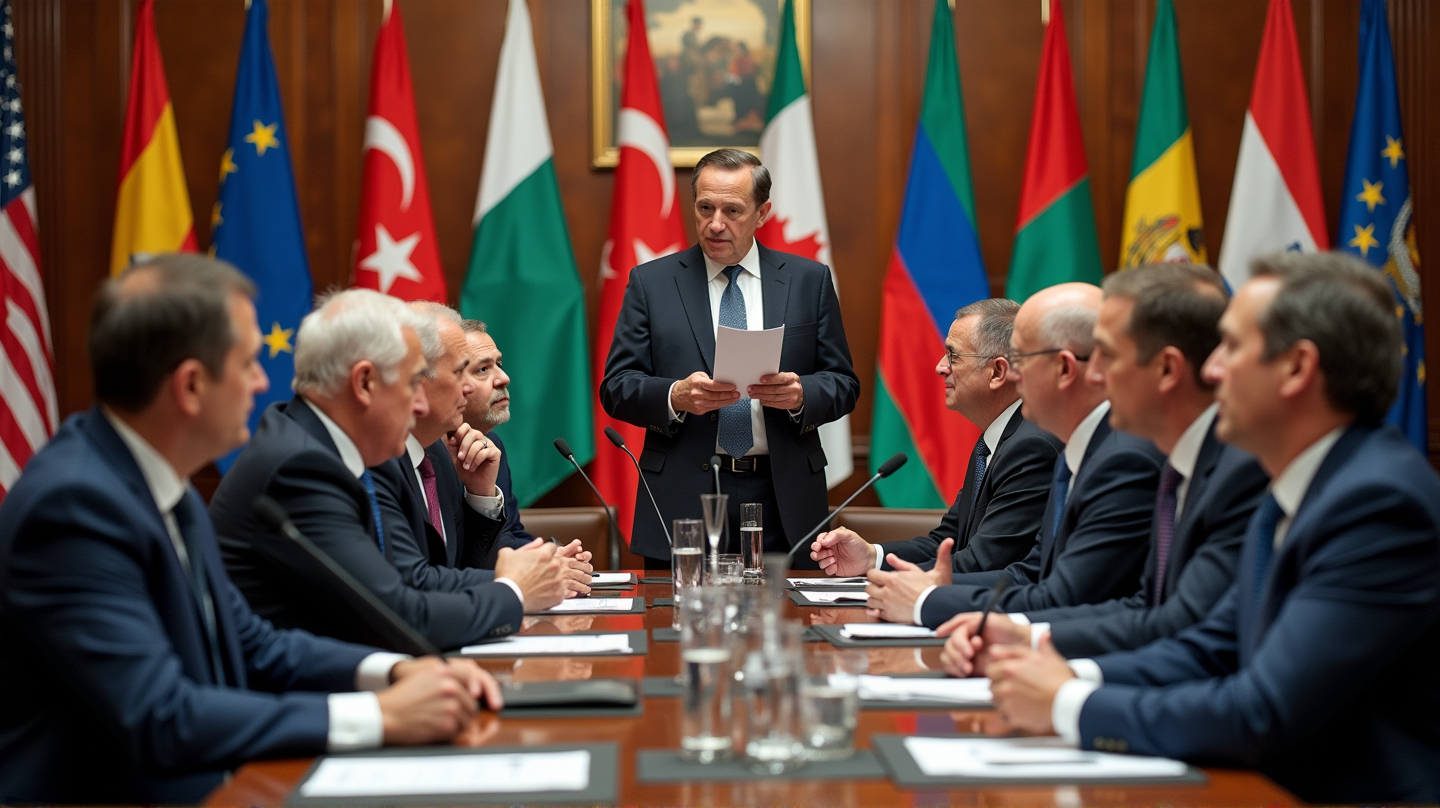Unpredictable Trade Policies: Trump's Latest Tariff Turmoil
Trump's erratic tariff strategies leave countries baffled and scrambling for alternatives. Will the US maintain its economic leverage?

In a week of head-spinning policy shifts, President Donald Trump has once again confounded the international community with unpredictable trade strategies, causing bewilderment among nations striving for tariff relief. The administration’s latest moves have provoked a mix of anxiety and astonishment, testing the patience of global leaders contending with the U.S.’s volatile approach to economics.
Doubling Down on Trade Wars
Doubling the stakes, Trump has decided to escalate his trade wars by threatening increased taxes on goods from North America and beyond. In a dramatic move, new tariffs of 30% on European Union and Mexican imports were announced, a shot across the bow that left global markets unsettled.
Former trade negotiator Wendy Cutler notes the growing unpredictability: “Trading partners are left in the dark, not knowing what tomorrow holds.”
The Canadian Dilemma
Relations with Canada took a sharp turn when Trump raised tariffs to 35%, despite Prime Minister Mark Carney’s concerted efforts toward a conciliatory trade deal. This abrupt decision came right after Canada made significant concessions, including the removal of a digital services tax unfavorable to U.S. tech firms.
These erratic strategies are seen not just as economic maneuvers but political tools, as President Trump seems to harness tariffs to sway internal matters of other nations.
Beyond Economic Borders
The President’s recent decision to levy a substantial 50% import tax on Brazil appears to extend beyond trade, targeting the political climate surrounding former Brazilian president Jair Bolsonaro. Though Trump cited trade deficits, reality paints a different picture, with a long-standing surplus in U.S.-Brazil trade exchanges.
Eswar Prasad, of Cornell University, suggests tariffs are being transformed into broader instruments of political leverage, hinting at goals that tread far beyond economics.
Nations Pushed to New Strategies
The outcome of these developments is a reshaped global landscape where some nations are exploring economic paths divergent from U.S. dependency, looking toward fortified trade pacts within Asia and potential ties with China.
“We have our own red lines,” Malaysia’s Trade Minister stated, emphasizing non-negotiable U.S. demands.
The Future of U.S. Trade Relations
Despite Trump’s bullish stance on trade impositions, countries like Thailand and Vietnam have shown willingness to engage, the former agreeing to new deals undecided just months before. Yet, whether nations will continue to accept U.S. pressure tactics with increased scrutiny remains to be seen, especially as they seek more favorable terms elsewhere.
As the stories unfold, it’s a time of reckoning for countries grappling with the enigmatic U.S. trade landscape. As stated in newspressnow.com, success might lie in navigating this tumultuous era by finding the delicate balance between maintaining alliances and asserting national interests.





